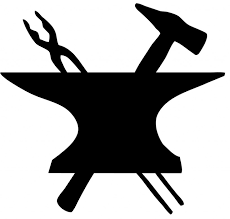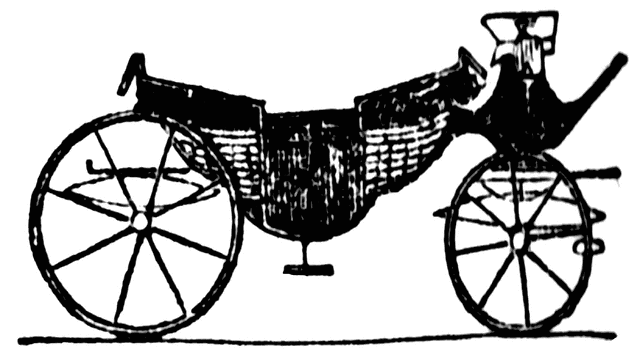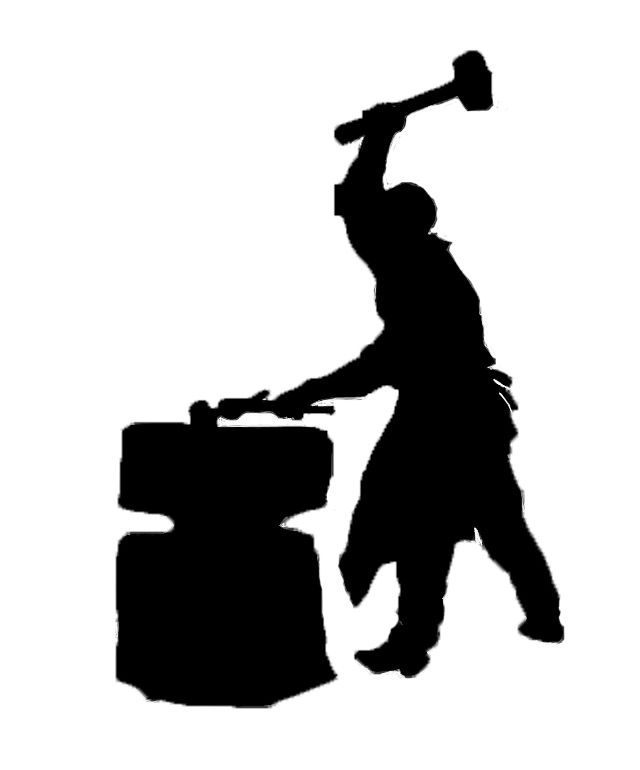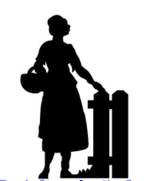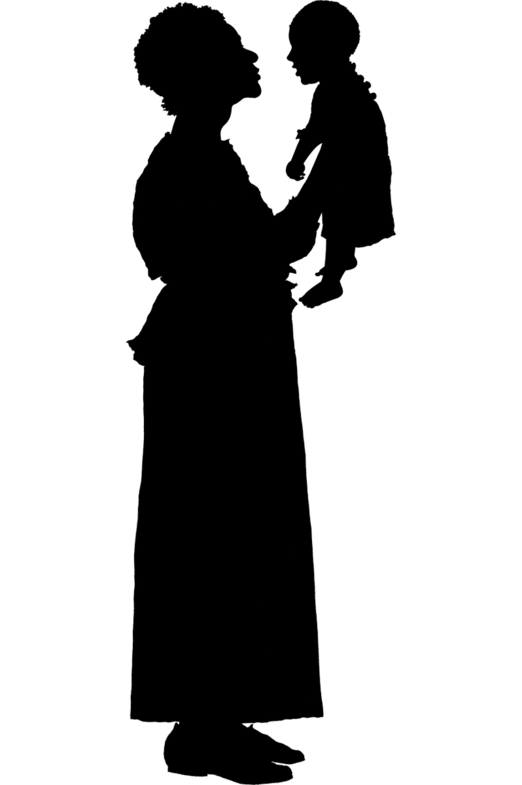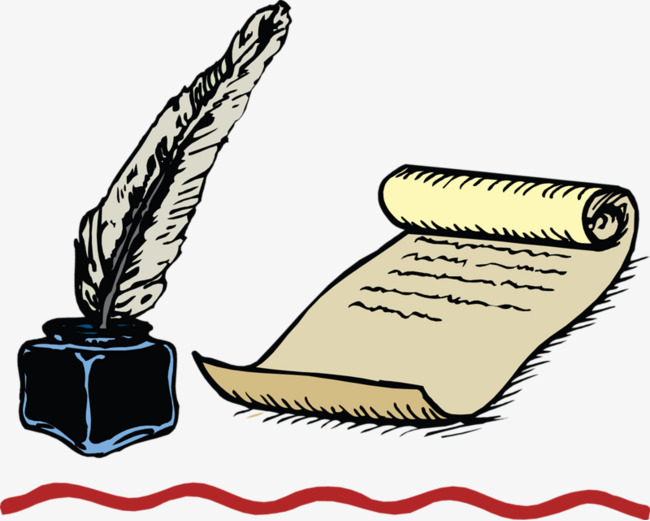According to the Farm Book, Joe Fossett was born in 1780. His mother, Mary Hemings, was the oldest daughter of Betty Hemings. His father may have been a carpenter named William Fossett who worked at Monticello. Mr. Jefferson made mention of paying his workers in his Memorandum Book:
"Feb.11. Agreed with Joseph Neilson that he and his apprentice Wm. Fosset shall continue a year with me for which I am to pay him L30. & find him provisions. (1)
Joe was born in Richmond, Virginia and was only a few months old when the British invaded the town in early 1781. Mr. Jefferson's house slaves and their children were captured and taken to Yorktown, where they remained until the Siege of Yorktown and surrender of Cornwallis in October, 1781. Isaac Jefferson, a young boy at the time, described what happened at that time:
"And so the British carred them down to Little York (Yorktown). They marched straight through town and camped jist below back of the battlefield. Mr. Jefferson's people there was Jupiter, Sukey the cook, Usley [Ursula], George, Mary the seamstress, and children Molly, Daniel, Joe, Wormley and Isaac. The British treated them mighty well; give 'em plenty of fresh meat and wheat bread. It was very sickly at York; great many colored people died there, but none of Mr. Jefferson's folks."(2)
While Mr. Jefferson was in France, he hired out some of his slaves. Mary Hemings was leased to work for Thomas Bell, a white merchant in Charlottesville. By 1792 Mary had become Bell's common law wife and had two more children. She asked her master to sell her to Mr. Bell, which he agreed to do. His directions to the overseer included:
"I am not certain whether I gave you power to dispose of Mary according to her desire to Colo. Bell, with such of her younger children as she chose. If I did not, I now do it, and will thank you to settle the price as you think best." (3)
As a result, Mr. Bell bought his own children, Bob and Sally, while Joe (age twelve) and his sister Betsy (age nine) stayed at Monticello. While they were still young, the two children probably did odd jobs around the house and on Mulberry Row. Joe was one of the young slave boys chosen to help wash dishes in the dining room. These boys included his cousins Brown, Burwell, and Wormley.
In 1791 , Martha Jefferson Randolph wrote to her father about the problems she was having with the boys washing the valuable china :
" Martin has left us and not relying much in the carefullness of the boys particularly when left to them selves I took an account of the platechina and locked up all that was not in imediate use...the china was preserved entire except our beautiful cups which being obliged to leave out are all broke but one... It was very troublesome in the begining tho now I have the boys in tolerable order every thing goes pretty well." (4)
Joe Fossett...
" A Very Fine Workman"
Mr. Bell and Mary Hemings
Success in the Nailery
Like most Monticello slave boys, Joe Fossett began working in the nailery at a young age - but unlike some of his fellow workers, Joe proved to be a skilled and efficient nail maker. Mr. Jefferson judged the abilities of his workers by keeping track of their nail production. Those who were more skilled made more nails and wasted less of the expensive nail rod. Farm Book (5)
By age fourteen Joe excelled in the nail making trade.By age sixteen he was learning the black smithing trade by working for Little George, the head of the shop. Little George died due to medical treatment by the conjurer. Mr. Jefferson hired William Stewart to take charge of the shop and Joe continued to learn his trade under Stewart's supervision.
In his memoirs, Mr. Bacon, the overseer, spoke of Joe's skills as a blacksmith:
"Joe Fosset made the ironwork. He was a very fine workman; could do anything it was necessary to do with steel or iron. He learned his trade of Stewart. Mr. Jefferson kept Stewart several years longer than he would have otherwise have done in order that his own servants might learn his trade...Stewart was a very superior workman, but he would drink."(6)
By 1800 Mr. Jefferson was relying on Joe's blacksmithing skills as the most superior in the shop. Among his orders to the overseer he writes:
"I think it will be best to put Joe to the anvil: as I have no doubt he will make the best smith. Moses maybe employed in making nails: for the smith & Joe will make more chains than we can sell at their leisure times.(10)
Later the same year, Mr. Richardson reports this news from the shop:
"I Carryed Mr lilley to the Shop this morning and told the Boys they was to Be under his direction and Joe to say when their nails was made tow Big or too small...(11)
Trouble with Mr. Stewart
Mr. Jefferson was well aware of Mr. Stewart's drinking sprees, what he called "idle frolics" and took the problem into account when he left orders for Mr. Bacon:
"Joe works with Mr. Stewart; John Hemings and Lewis with Mr. Dinsmore, Burwell paints and takes care of the house...Stewart and Joe do all the plantation work; and when Stewart gets into his idle frolics, it may sometimes be well for Moses or Isbel's Davy to join Joe for necessary work." (7)
George Jefferson, Mr. Jefferson's agent in Richmond, had warned him of possible trouble with his new blacksmith, the highly skilled Stewart.
"William Stewart having to day called on me on his way to Monticello, I advanced him $:40 - on his shewing me a letter from you in which he is referred to us.
I am apprehensive that you employed him on a very slight acquaintance - or else on a recommendation in which you placed too much reliance.
He was with me twice to day (once in the morning) and was either much intoxicated, or is actually a mad-man.
I do
not know in what capacity he is going to Monticello, although I asked
him; for he gave me such incoherent answers, that I could not understand
him."( 8)
Six months later Mr. Jefferson speaks of his blacksmith again:
"...I note & approve what you did as to Stewart. he is the best workman in America, but the most eccentric one: quite manageable were I at home, but doubtful as I am not." (9)
Note: Mary Stewart, the blacksmith's wife, died while living at Monticello. She is one of only a few people buried in the graveyard who was not part of the Jefferson family. The Stewart family had a house somewhere along the third roundabout.
Joe Takes Over the Shop
Edy Makes A Good Cook
Joe's future wife Edy (Edith) was the daughter of Davy and Isabel Hern, two Monticello slaves working as field hands. Edy and Joe had a large family of ten children.
Edy must have shown promise as a good cook. In 1802 Mr. Jefferson took her with him to Washington where she was trained in the art of French cooking. Her instructor was the French chef, Honore Julien. The years Joe and Edy were separated must have been long for both of them.
Like the other servants at the President's House, Edy was paid wages while working in Washington.
Memorandum Book (14)
Mr. Jefferson returned from Washington in July, 1806. Edy and Fanny were not allowed to come home for a visit. Joe was anxious to hear word from Edy but he heard such alarming news that he made the decision to run away and headed straight for Washington. Mr. Jefferson's notes to his coachman, Joseph Dougherty, tell the story of the pursuit of Joe. The bad news Joe had received is unknown.
"In the first place say not a word on the subject of this letter but to mr Perry, the person who delivers it to you. he comes in pursuit of a young mulatto man, called Joe, 26. years of age, who ran away from here the night of the 29th. inst. without the least word of difference with any body, & indeed having never in his life recieved a blow from any one. he has been about 12. years working at the blacksmith's trade. we know he has taken the road towards Washington, & probably will be there before the bearer. he may possibly trump up some story to be taken care of at the President's house till he can make up his mind which way to go; or perhaps he may make himself known to Edy only, as he was formerly connected with her. I must beg of you to use all possible diligence in searching for him in Washington & George town, and if you can find him, have aid with you to take him as he is strong & resolute..." (17)
Mr. Dougherty responded:
"This morn. at 9 oclok Mr. Perry arived here on pursuit of your boy Joe...About 4 oclok in the even...I got wind of him [Joe] I met with him in the Presidents yard going from the Presidents House, and being informed of his marks and clothing by Mr. Perry I knew it must be him. I took him immediately & brot. him to Mr. Perry & has him now in jail. Mr. Perry will start with him tomorrow, for Monticello..." (18)
Finally, Mr. Jefferson notes in the Memorandum Book:
"Aug. 7. John Perry returns with Joe. His expences have been 20.50 & I allow him 16.D. for himself & horse, so I owe him 11.50." (19)
In spite of his mistake Joe must have remained in Mr. Jefferson's good graces. Just one year later he was in charge of the blacksmith shop and started receiving his "encouragements". But Joe and Edy had to wait until 1809 to be reunited when Mr. Jefferson retired from the presidency and returned home for good.
Edy having become a skilled cook, returned home to take over the kitchen from Peter Hemings, Joe's uncle. She would go on to serve meals to guests in the Monticello dining room, described by Daniel Webster as:
"Dinner is served in half Virginian, half French style, in good taste and abundance." (20)
Edy (and perhaps Joe and their younger children) lived in the cook's room under the south terrace of the main house. The room had stone walls, a brick floor, and was about the size of a slave cabin (10 by 14 feet). Mr. Jefferson sent instructions to Mr. Bacon so that he could prepare Edy's room before she arrived home:
"As the two cooks {Edy and Fanny} which are here, will take the place of Peter Hemings in the kitchen, it will be necessary that one of them should have his room next the kitchen, and that it should be vacant on their arrival." (21)
Joe Runs Away...
What sort of bad news could Joe have heard?
Why didn't his slaves come home when Mr. Jefferson came home for a visit?
Could Joe have asked for permission to see Edy, instead of running away?
Why did Mr. Jefferson separate Joe and Edy when they were "married"?
Was Joe punished?
Why did the cook need to live so close to the kitchen?
How did Peter Hemings feel about changing his room? Did he have any choice?
Why didn't Mr. Jefferson free Joe's family?
Joe Becomes a Free Man
Joe Fossett was one of the five slaves Jefferson freed in his will. He was freed one year to the day Mr. Jefferson died, on July 4, 1827.
"I give also to my good servants, John Hemings and Joe Fosset, their freedom, at the end of one year after my death; and to each of them respectively, the tools of their respective shops or callings; and it is my will that a comfortable log-house be built for each of the three servants so emancipated, in some part of my lands convenient to them with respect to the residence of their wives, and to Charlottesville, and the University, where they will be mostly employed." (23)
Joe remained at his work in the blacksmith shop until 1831, when he purchased a shop and lot in Charlottesville. The will did not free Joe's large family. Most of them were purchased by people in the community at the estate sale.
In 1837, Joe had saved enough money to buy and manumit Edy, five of their children and also some of their grandchildren. The family later relocated to Cincinnati, Ohio. Joe and some of his sons made their living by black smithing, the trade he had learned so well at Monticello.
Joe could not purchase one of his sons, Peter Farley Fossett. Learn about Peter Fossett in his story...
Sources
In spite of Mr. Stewart's frolics, he must have been a good teacher. Joe Fossett developed superior skills as a blacksmith. Mr. Jefferson would allow him to keep a share of the income (a shilling for each dollar) earned in the shop. He kept track of Joe's "encouragements" in the Memorandum Book:
"Dec.24. Recd. by Joe from F.B. Dyer for smith's work 32D. + Joe's part 6.40." (12)
Joe Fossett and his uncle John Hemings, a carpenter, combined their skills to make Mr. Jefferson's new landau, a fancy carriage which was built entirely on the plantation by these skilled tradesmen.
"He (John Hemings) made most of the woodwork of Mr. Jefferson's fine carriage. Joe Fosset made the ironwork. And Burwell was a fine painter. He painted the carriage... (13)
Where would Joe and Betsy live after their mother moved away?
Who would take care of them?
Were they considered children at the ages of twelve and nine?
(1) Memorandum Book, February 11, 1775, Founders Online.
(2) Jefferson at Monticello:Recollections of a Monticello Slave, Bear, Dictated to Charles Campbell by Isaac, page 10.
(3) Thomas Jefferson to Nicholas Lewis, April 12, 1792, Founders Online.
(4) Martha Jefferson Randolph to Thomas Jefferson, January 16, 1791, Founders Online.
(5) Farm Book, Nail Chart, page 111.
(6) Jefferson at Monticello, Bacon Memoirs, Bear, page 102.
(7) Jefferson at Monticello:Private Life of Jefferson, Jefferson Memorandum to Edmund Bacon, 1805-06, Bear, page 54.
(8) George Jefferson to Thomas Jefferson, June 17, 1801, Founders Online.
(9) Thomas Jefferson to George Jefferson, December 3, 1801,Founders Online.
(10) Thomas Jefferson to R. Richardson, February 17, 1800,Founders Online.
(11) R. Richardson to Thomas Jefferson, December 22, 1800. Founders Online.
(12)Memorandum Book, December 24, 1822, Founders Online.
(13) Jefferson at Monticello:Private Life of Jefferson, Bear, Bacon Memoir,page 102.
(14) Memorandum Book, May 9, 1803, Founders Online.
(15) Thomas Jefferson to Martha J. Randolph, January 27, 1803, Founders Online.
(16) Memorandum Book, January 28,1803,Founders Online.
(17) Thomas Jefferson to Joseph Doughtery, July 31,1806, Founders Online.
(18) Joseph Doughtery to Thomas Jefferson, August 3, 1806,Founders Online.
(19) Memorandum Book, August 7, 1806, Founders Online.
(20) Papers of Daniel Webster, 1:371,Founders Online.
(21) Thomas Jefferson to Edmund Bacon, February 27, 1809, Founders Online.
(22) Martha Jefferson Randolph to Thomas Jefferson, August 7, 1819, Founders Online.
(23) Will of Thomas Jefferson, Randall, Volume 3, Page 666.
Edy gave birth to three children while she was living in Washington from Fall, 1802 until Spring, 1809.
He then went on to write to his daughter Martha:
"Edy has a son, & is doing well." ( 15)
In January of 1803, Mr. Jefferson made a note in his Memorandum Book:
"Jan. 28. Pd. Thompson 5.D. for attending Edy in childbed." (16)
Unfortunately, that baby soon died. But Edy would go on to have a baby named James in 1805 and another daughter named Maria in 1807.
Fire in the Shop
Joe was one of the few slaves on the mountaintop in August, 1819 when a major fire started in his shop. Martha Randolph wrote to her father:
"...the smith's shop took fire a few days since and but for the circumstance of his [Capt. Peyton] being here with Mr Randolph & F. Gilmer it would certainly have burnt down. there was no man upon the mountain but Joe and old John, and whilst Joe was disengaging the bellows the 3 passed on their way...Capt Peyton tore the planks off of the roof by main force the rafters were so much burnt that they fell in immediately both Mr Randolph and himself were smartly burnt particularly Mr R - whose cloaths caught nothing was lost but the roof which they are repairing with all speed." (22)
Edy and Joe's Family
Queries
Queries
Queries
Edith Hern Fossett ...
"Mr. Jefferson's Favorite Cook"
A Landau
